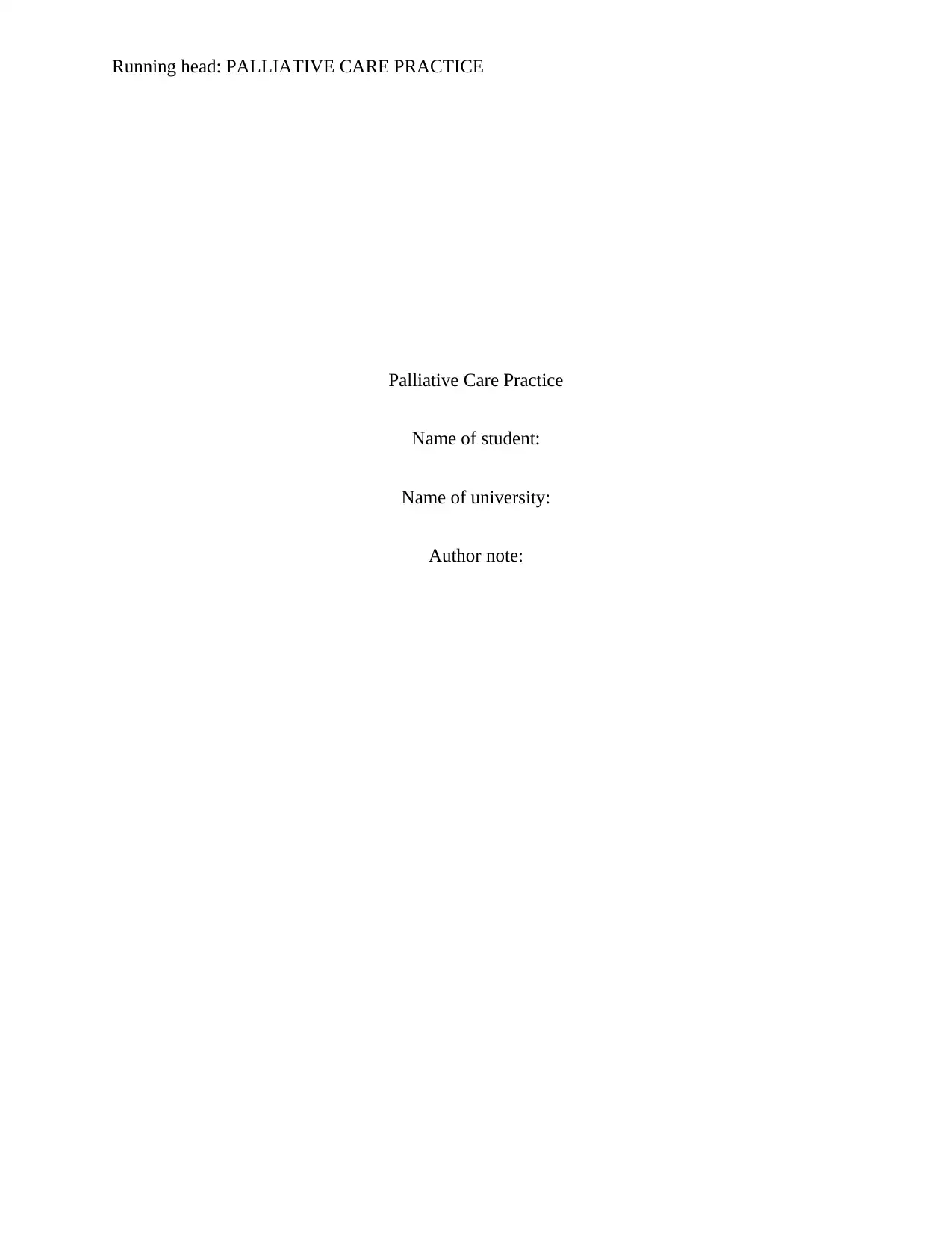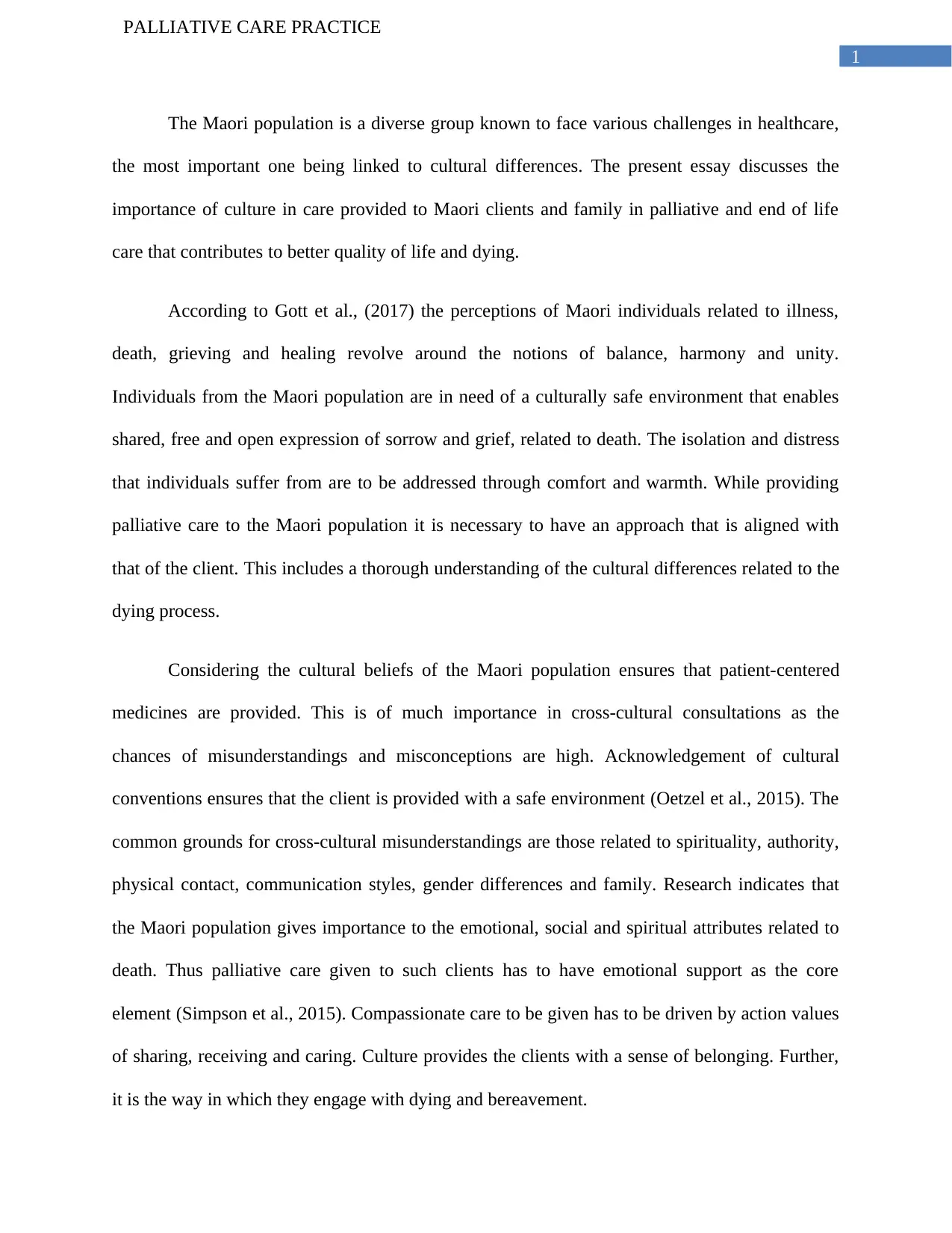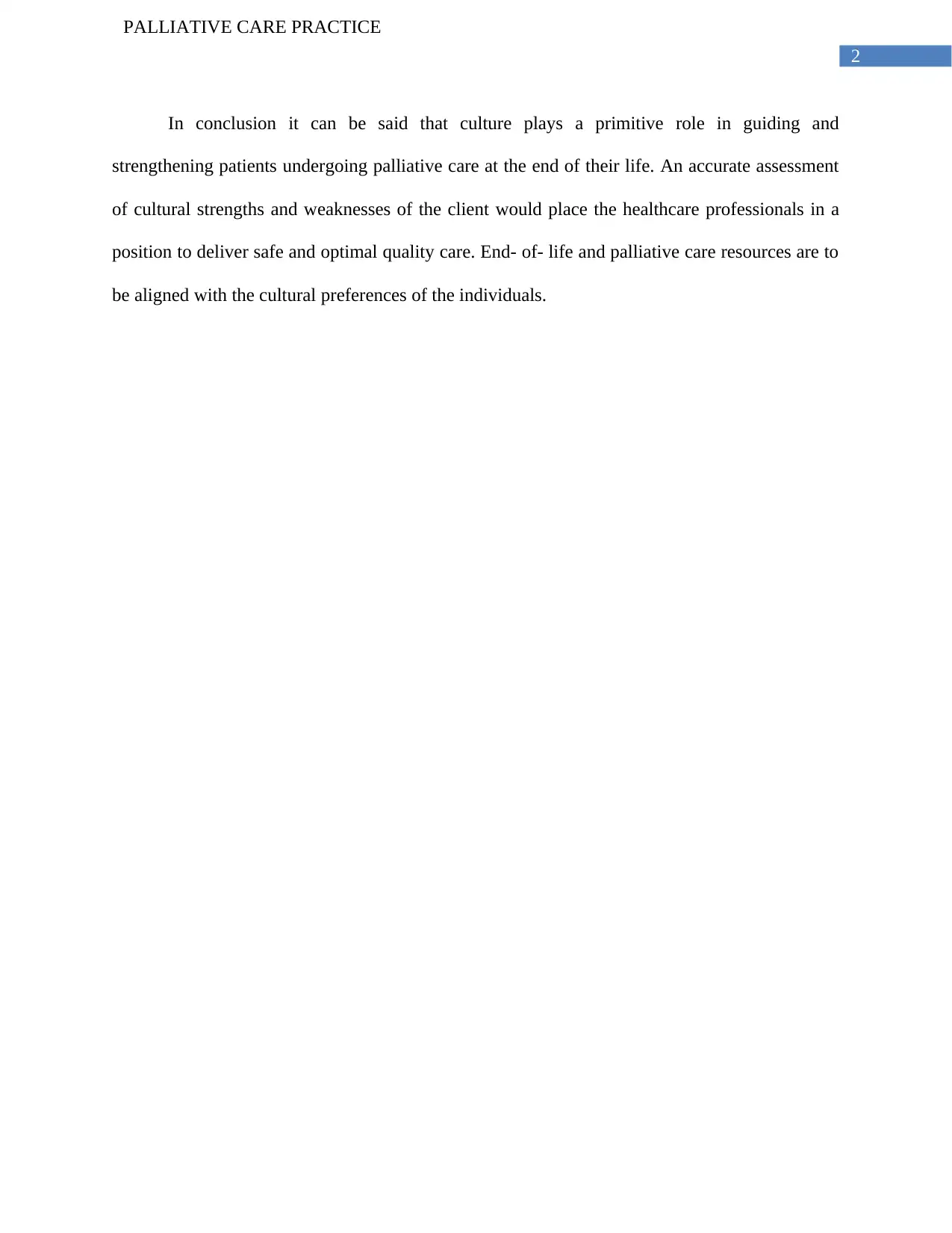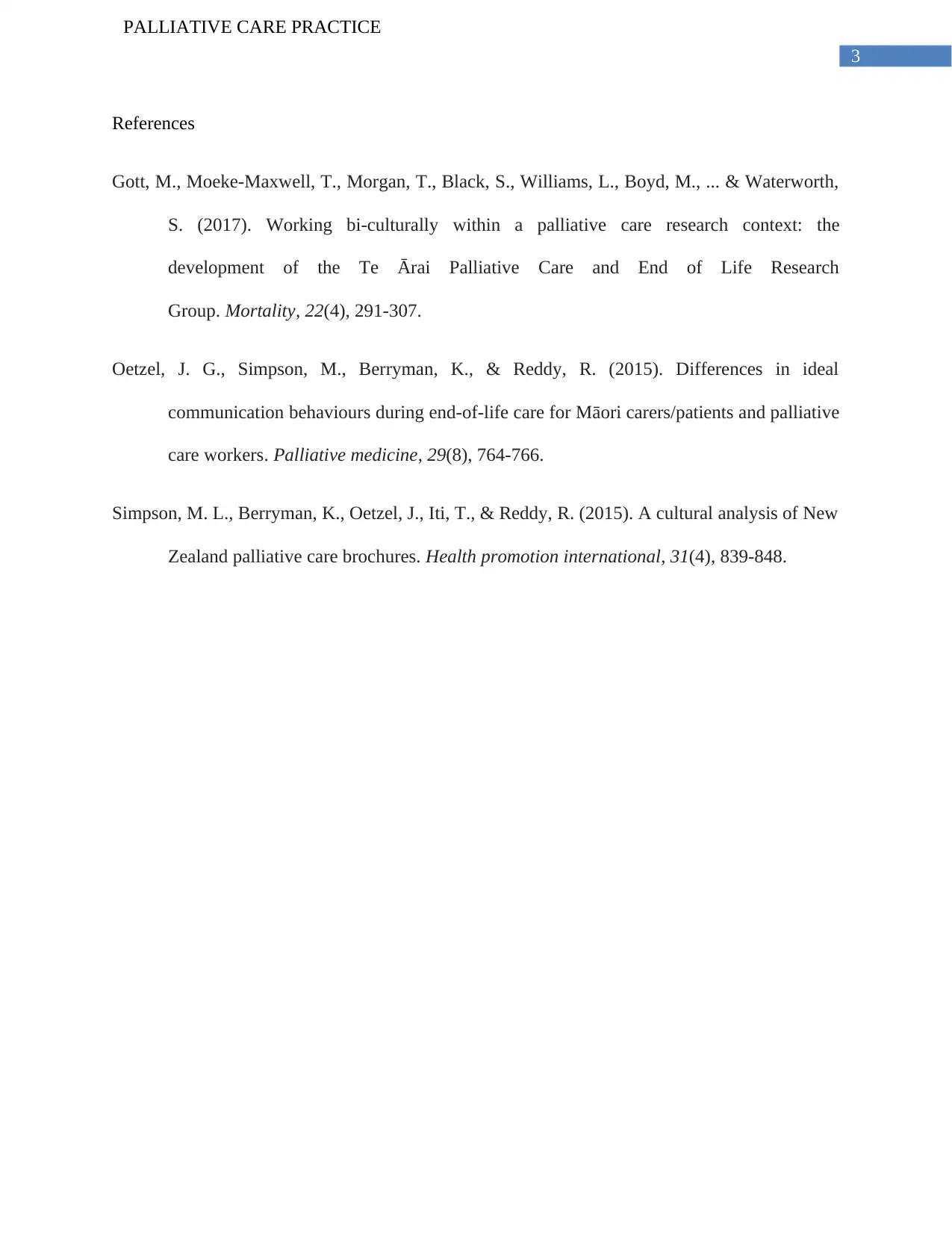Palliative Care Practice Essay: Healthcare and Cultural Considerations
VerifiedAdded on 2021/05/31
|4
|607
|115
Essay
AI Summary
This essay delves into the critical role of cultural sensitivity in palliative care, with a specific focus on the Maori population. The author emphasizes the importance of understanding Maori beliefs and values related to illness, death, and grieving to provide culturally appropriate care. The essay highlights the need for a safe and supportive environment, open communication, and the integration of cultural practices to ensure patient well-being and comfort during end-of-life care. It discusses the significance of emotional, social, and spiritual support, as well as the need to address potential cross-cultural misunderstandings. The essay concludes by advocating for the alignment of palliative care resources with the cultural preferences of the individuals, emphasizing the crucial role of cultural assessment in delivering optimal care. The essay references key studies, which supports the importance of cultural sensitivity in palliative care.
1 out of 4











![[object Object]](/_next/static/media/star-bottom.7253800d.svg)